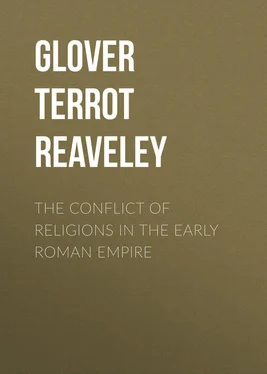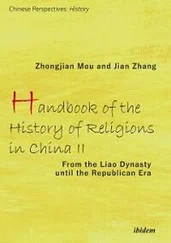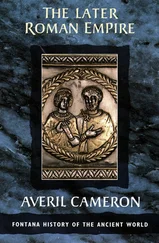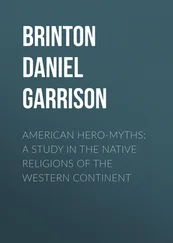Terrot Glover - The Conflict of Religions in the Early Roman Empire
Здесь есть возможность читать онлайн «Terrot Glover - The Conflict of Religions in the Early Roman Empire» — ознакомительный отрывок электронной книги совершенно бесплатно, а после прочтения отрывка купить полную версию. В некоторых случаях можно слушать аудио, скачать через торрент в формате fb2 и присутствует краткое содержание. Жанр: foreign_religion, foreign_antique, foreign_prose, на английском языке. Описание произведения, (предисловие) а так же отзывы посетителей доступны на портале библиотеки ЛибКат.
- Название:The Conflict of Religions in the Early Roman Empire
- Автор:
- Жанр:
- Год:неизвестен
- ISBN:нет данных
- Рейтинг книги:4 / 5. Голосов: 1
-
Избранное:Добавить в избранное
- Отзывы:
-
Ваша оценка:
- 80
- 1
- 2
- 3
- 4
- 5
The Conflict of Religions in the Early Roman Empire: краткое содержание, описание и аннотация
Предлагаем к чтению аннотацию, описание, краткое содержание или предисловие (зависит от того, что написал сам автор книги «The Conflict of Religions in the Early Roman Empire»). Если вы не нашли необходимую информацию о книге — напишите в комментариях, мы постараемся отыскать её.
The Conflict of Religions in the Early Roman Empire — читать онлайн ознакомительный отрывок
Ниже представлен текст книги, разбитый по страницам. Система сохранения места последней прочитанной страницы, позволяет с удобством читать онлайн бесплатно книгу «The Conflict of Religions in the Early Roman Empire», без необходимости каждый раз заново искать на чём Вы остановились. Поставьте закладку, и сможете в любой момент перейти на страницу, на которой закончили чтение.
Интервал:
Закладка:
: Omens
All this reasoning comes after the fact. The whole world believed in divination, and the Stoics found a reason for it.[ 63 63 Panaetius and Seneca should be excepted from this charge.
] The flight of birds, the entrails of beasts, rain, thunder, lightning, dreams, everything was a means of Divination. Another passage from the same Dialogue of Cicero will suffice. Superstition, says the speaker, "follows you up, is hard upon you, pursues you wherever you turn. If you hear a prophet, or an omen; if you sacrifice; if you catch sight of a bird; if you see a Chaldæan or a haruspex ; if it lightens, if it thunders, if anything is struck by lightning; if anything like a portent is born or occurs in any way – something or other of the kind is bound to happen, so that you can never be at ease and have a quiet mind. The refuge from all our toils and anxieties would seem to be sleep. Yet from sleep itself the most of our cares and terrors come."[ 64 64 Cic. de Div. ii, 72, 149, 150. Cf. de Legg. ii, 13, 32. Plutarch also has the same remark about sleep and superstition.
] How true all this is will be seen by a moment's reflexion on the abundance of signs, omens and dreams that historians so different as Livy and Plutarch record. Horace uses them pleasantly enough in his Odes – like much else such things are charming, if one does not believe in them.[ 65 65 Cf. Odes , iii, 27.
] But it is abundantly clear that it took an effort to be rid of such belief. A speaker in Cicero's Tusculans remarks on the effrontery of philosophers, who boast that by Epicurus' aid "they are freed from those most cruel of tyrants, eternal terror and fear by day and by night."[ 66 66 Tusculans , i, 21, 48.
] When a man boasts of moral progress, of his freedom from avarice, what, asks Horace, of other like matters?
You're not a miser. Good – but prithee say,
Is every vice with avarice flown away? …
Does Superstition ne'er your heart assail
Nor bid your soul with fancied horrors quail?
Or can you smile at magic's strange alarms,
Dreams, witchcraft, ghosts, Thessalian spells and charms?[ 67 67 Hor. Ep. ii, 2, 208; Howes.
]
Horace's "conversion" is recorded in one of his odes, but it may be taken too seriously.
That superstition so gross was accompanied by paralysing belief in magic, enchantment, miracle, astrology[ 68 68 Tertullian, de Idol. 9, seimus magiæ et astrologiæ inter se societatem .
] and witchcraft generally, is not surprising. The historians of the Early Empire have plenty to say on this. It should be remembered that the step between magic and poisoning is a very short one. Magic, says Pliny, embraces the three arts that most rule the human mind, medicine, religion and mathematics – a triple chain which enslaves mankind.[ 69 69 Pliny the elder on Magic, N.H. xxx, opening sections; N.H. xxviii, 10, on incantations, polleantne aliquid verba et incantamenta carminum .
]
We have thus in Roman society a political life of a highly developed type, which has run through a long course of evolution and is now degenerating; we have a literature based upon that of Greece and implying a good deal of philosophy and of intellectual freedom; and, side by side with all this, a religious atmosphere in which the grossest and most primitive of savage conceptions and usages thrive in the neighbourhood of a scepticism as cool and detached as that of Horace. It is hard to realize that a people's experience can be so uneven, that development and retardation can exist at once in so remarkable a degree in the mind of a nation. The explanation is that we judge peoples and ages too much by their literature, and by their literature only after it has survived the test of centuries. In all immortal literature there is a common note; it deals with the deathless and the vital; and superstition, though long enough and tenacious enough of life, is outlived and outgrown by "man's unconquerable mind." But the period before us is one in which, under a rule that robbed men of every liberating interest in life, and left society politically, intellectually and morally sterile and empty, literature declined, and as it declined, it sank below the level of that flood of vulgar superstition, which rose higher and higher, as in each generation men were less wishful to think and less capable of thought.
Universal religions
But our theme is religion, and so far we have discussed nothing but what we may call superstition – and even Plutarch would hardly quarrel with the name. That to people possessed by such beliefs in non-human powers, in beings which beset human life with malignity, the restoration of ancient cult and ritual would commend itself, is only natural. To such minds the purpose of all worship is to induce the superhuman being to go peaceably away, and sacrifice implies not human sin, but divine irritation, which may be irrational. To the religious temperament, the essential thing is some kind of union, some communion, with the Divine; and sacrifice becomes the means to effect the relation of life to a higher will, – to a holier will, we might say, if we allow to the word "holy" a width of significance more congenial to ancient than to modern thought. And this higher will implies a divinity of wider reach than the little gods of primitive superstition, a power which may even be less personal if only it is great. Religion asks for the simplification of man's relations with his divine environment, for escape from the thousand and one petty marauders of the spirit-world into the empire of some strong and central authority, harsh, perhaps, or even cruel, but at least a controlling force in man's experience. If this power is moral, religion is at once fused with morality; if it is merely physical, religion remains non-moral, and has a constant tendency to decline into superstition, or at least to make terms with it.
In the hereditary religion of Rome, the only power that could possibly have been invested with any such character was Jupiter Capitolinus, but he had too great a likeness to the other gods of Italy – the gods with names, that is, for some of the more significant had none – Bona Dea and Dea Dia for example. Jupiter had his functions, but on the whole they were local, and there was very little or nothing in him to quicken thought or imagination. It was not till the Stoics made him more or less the embodiment of monotheism, that he had a chance of becoming the centre of a religion in the higher sense of the word, and even then it was impossible; for first, he was at best little more than an impersonal dogma, and, secondly, the place was filled by foreign goddesses of far greater warmth and colour and activity. Stat magni nominis umbra .
Cybele and her priests
It was during the second Punic War that Cybele was brought from Asia Minor to Rome and definitely established as one of the divinities of the City.[ 70 70 Livy, xxix, 11, 14; Ovid, fasti, iv, 179 f. The goddess was embodied in a big stone.
] The Great Mother of the gods, she represented the principle of life and its reproduction, and her worship appealed to every male and female being in the world. It inspired awe, and it prompted to joy and merriment; it was imposing and it was mysterious. Lucretius has a famous description of her pageant: —
"Adorned with this emblem (the mural crown), the image of the divine Mother is carried nowadays through wide lands in awe-inspiring state. Different nations after old-established ritual name her Idæan Mother, and give for escort Phrygian bands… Tight-stretched tambourines and hollow cymbals thunder all round to the stroke of their open hands, and horns menace with hoarse-sounding music, and the hollow pipe stirs their minds with its Phrygian strain. They carry weapons before them, emblems of furious rage, meet to fill the thankless souls and godless breasts of the rabble with terror for the Divinity of the Goddess. So, when first she rides in procession through great cities and mutely enriches mortals with a blessing not expressed in words, they straw all her path with brass and silver, presenting her with bounteous alms, and scatter over her a snow-shower of roses, over-shadowing the mother and her troops of attendants. Here an armed band, to which the Greeks give the names of Phrygian Curetes, join in the game of arms and leap in measure, all dripping with blood, and the awful crests upon their heads quiver and shake."[ 71 71 Lucretius, ii, 608 f.
]
Интервал:
Закладка:
Похожие книги на «The Conflict of Religions in the Early Roman Empire»
Представляем Вашему вниманию похожие книги на «The Conflict of Religions in the Early Roman Empire» списком для выбора. Мы отобрали схожую по названию и смыслу литературу в надежде предоставить читателям больше вариантов отыскать новые, интересные, ещё непрочитанные произведения.
Обсуждение, отзывы о книге «The Conflict of Religions in the Early Roman Empire» и просто собственные мнения читателей. Оставьте ваши комментарии, напишите, что Вы думаете о произведении, его смысле или главных героях. Укажите что конкретно понравилось, а что нет, и почему Вы так считаете.












